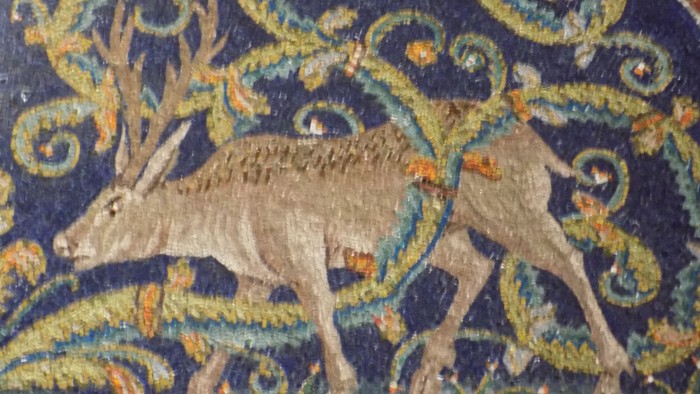02/07/2024 0 Comments
Beekeeping and Beyond – a talk by Revd George Heighton on September 4th 2023
Beekeeping and Beyond – a talk by Revd George Heighton on September 4th 2023
# Sarah's blog

Beekeeping and Beyond – a talk by Revd George Heighton on September 4th 2023
St Mary's continued to address environmental issues on Monday evening when the arts team organised a talk on beekeeping, given by Revd George Heighton who is the Vicar of the Brailes and Tysoe group of churches in South Warwickshire.
George talked about the friendly nature of the beekeeping community, and in particular he recommended anyone interested in beekeeping to join a local beekeeping club. This enables people to gain support and experience before setting out to keep their own bees, which is a skilled hobby and hard work. Apart from the obvious advantage of producing delicious honey (and George brought along some samples of honey for the audience to try), beekeeping is a whole environmental issue, and ensures that flowers are pollinated so that fruit and seeds grow and food can be harvested. Without bees, we would not have the wildlife and plants which we take for granted as part of our countryside and provision of food supplies.
George brought along with him a selection of his beekeeping equipment to show us, including a protective suit to wear when working around a hive. Even with the special suit and mask, the beekeeper is going to get stung. Different colonies of bees have different temperaments and behavioural patterns, but the most aggressive bees also produce the most honey. Bees work by smell and are sensitive to pheromones, so a beekeeper uses a smoker device to mask the smell of pheromones and allow access in order to work on the hives.
George also brought a hive which he dismantled. He showed us how the different layers allow a bee colony to produce honey and the queen bee to access only certain layers of the hive in which to lay up to 2,000 eggs per day in season. Bees can't fly when it is cold, so they feed from their own honey during the winter months but between late April and early June they become particularly active. If the beekeeper does not vigilantly provide adequate space by adding layers of “supers”, the bees may follow a queen bee away from the hive in a swarm because of her pheromones.
Honey lasts in excellent condition for many years, although beekeepers are required to put a 'best before' date on any honey which they sell. However, bear in mind that the honey found in an ancient Egyptian Pharoah's tomb was still edible after 5,000 years!
The audience thoroughly enjoyed George's excellent talk and came away with a considerably increased understanding of the ancient practice of beekeeping and its importance for the environment. Some of us also came away with a delicious pot of Vicarage honey. Thank you so much, George, for taking the time to come and talk to us about this fascinating hobby.
Revd Sarah Bourne – Chaplain for the Arts


Comments